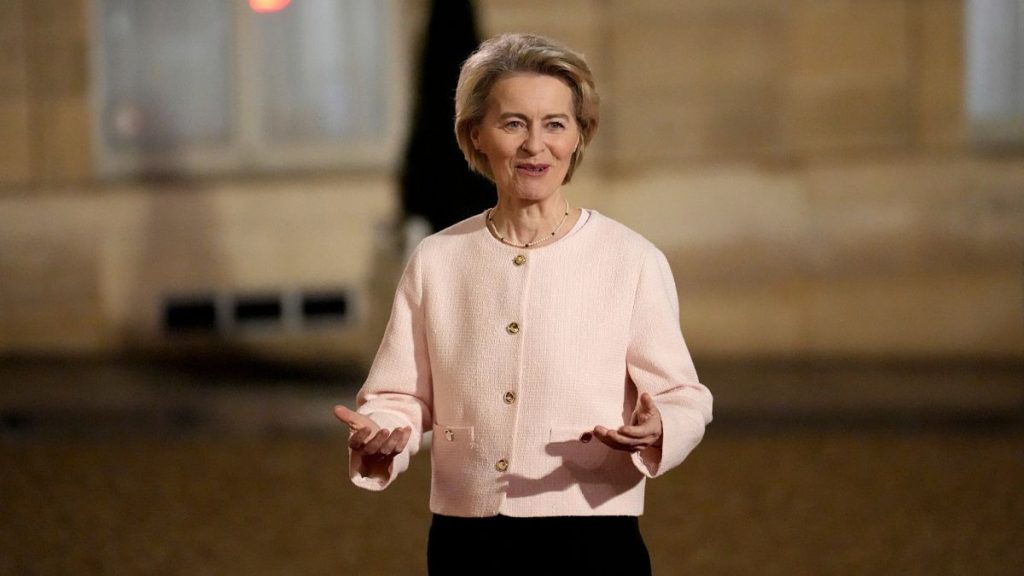Summarize this content to 2000 words in 6 paragraphs
The EU Commission will propose to activate the escape clause for defence investments, Ursula von der Leyen announced in Munich. “This will allow Member states to substantially increase their defence expenditure,” she said.
European Commission chief Ursula von der Leyen announced on Friday that she will propose to activate the escape clause in the bloc’s fiscal rules in a bid to “substantially” boost member states’ defence investment. The measure, von der Leyen told the Munich Security Conference, would be done in “a controlled and conditional way” and will be followed by “a wider package of tailor-made tools to address the specific situation of each of our Member States.”Under the Stability and Growth Pact, member states are obligated to implement a fiscal policy that aims to keep government deficit under 3% of GDP and debt under 60% of GDP. Failing to do so can result in an Excessive Deficit Procedure (EDP) from the Commission and penalties including fines. Eight member states – Belgium, France, Hungary, Italy, Malta, Poland, Romania, and Slovakia – are currently targeted by such a procedure.Several EU countries including Poland, Italy, Greece and the Baltics, have been asking for such a review of the Pact, citing the precedent made during the COVID-19 pandemic when the Commission suspended fiscal rules to enable governments to assist companies and citizens with their pandemic-induced bills.An informal retreat of EU leaders in Brussels earlier this month, dedicated to how to boost defence capabilities and financing across the bloc, had also identified the measure as one of priority, primarily because it is among the least controversial options on the table. The bloc needs to invest some €500 billion in its defence in the coming decade in order to continue supporting Ukraine, but also ensure it can protect itself, alone, if needed against any aggression.Negotiations are also ongoing among NATO allies, which include 23 of the EU’s member states, to raise the defence spending target from its current 2% of GDP level. A decision is set to be announced at a summit in The Hague in late June.The 27 EU member states collectively spend around 2% of GDP on defence, von der Leyen said, with the total combined spend raching 320 billion last year, up from 200 billion before Russia launched its full-scale attack against Ukraine.“But we will need to increase that number considerably once again. Because from just below 2% to above 3% will mean hundreds of billions of more investment every year. So, we need a bold approach,” she said. The Commission is to present its White Paper on Defence on March 19, to outline which military capabilities it thinks the EU should collectively invest in and what it views as the best ways to finance them.Leaders are then expected to sign off on those options at a summit in June.Some of the options that already appear to have garnered consensus among member states are a change to the European Investment Bank’s (EIB) lending rules and for private European banks.A change to the EIB’s mandate, von der Leyen said earlier this month, would “make it easier for the private banking sector to follow suit”.European households’ savings reach almost €1.4 trillion, well above the €800 billion in the United States, yet little of that money is invested in defence as the sector is not seen as sustainable under the bloc’s taxonomy rules.Several member states, including France, Spain and Italy, are meanwhile also asking for the issuance of so-called Eurobonds to finance the defence industrial base ramp-up. The instrument, first unleashed to jolt the bloc’s economy from its COVID-induced stupor, is however strongly opposed by some of the Frugal countries such as The Netherlands or Germany.
Keep Reading
Subscribe to Updates
Get the latest creative news from FooBar about art, design and business.
© 2025 Globe Timeline. All Rights Reserved.


